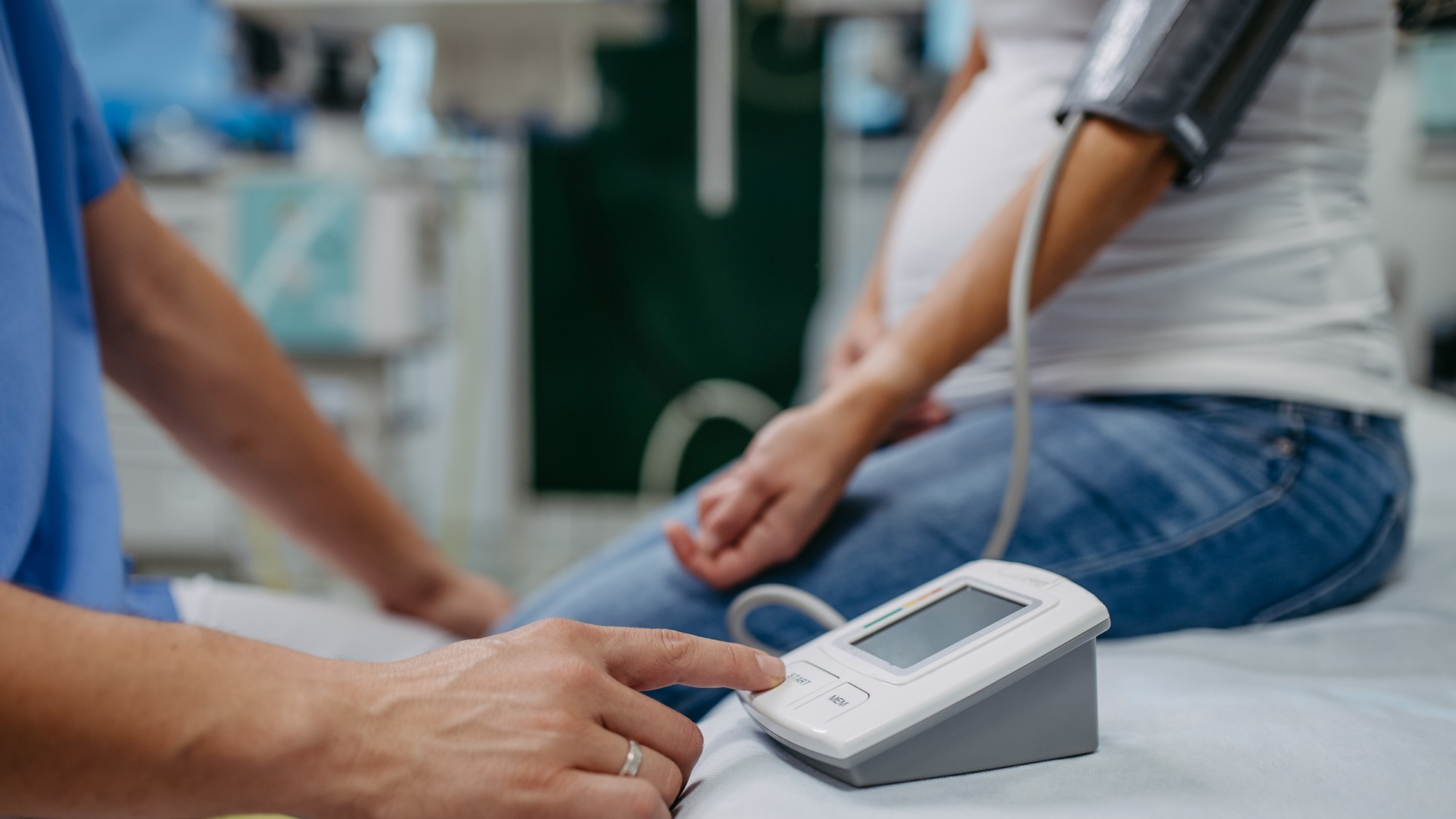Preeclampsia: The dangerous pregnancy condition is affecting more women
The increase is exacerbating an already existing maternal health crisis in the US


A free daily email with the biggest news stories of the day – and the best features from TheWeek.com
You are now subscribed
Your newsletter sign-up was successful
Preeclampsia, a dangerous blood pressure condition, and other pregnancy-related complications have been on the rise, worsening the maternal health crisis in the U.S. The condition can be deadly. While there is no clear cause for preeclampsia, there are several potential risk factors.
High tension
Preeclampsia usually develops in the 20th week of pregnancy and is associated with high blood pressure or hypertension, high levels of protein in urine and damage to the kidneys or other organs. In addition, those with preeclampsia are at higher risk for developing kidney disease, heart disease and stroke later in life. They are also more likely to have preeclampsia during future pregnancies.
The rate of preeclampsia has more than doubled between 2007 and 2019 and has developed in many people who were otherwise healthy. "Cardiovascular causes — including preeclampsia — were behind about a third of U.S. maternal deaths in 2020," said The Wall Street Journal. "Doctors don't know why for sure, but possible risk factors include poor diet, obesity, older age and stress." There was also a marked increase during the pandemic. "Right away, there was chatter about more hypertension and preeclampsia being noticed in the Covid hot spots," Jennifer Jury McIntosh, a maternal-fetal-medicine specialist in Milwaukee, said to The New Yorker.
The Week
Escape your echo chamber. Get the facts behind the news, plus analysis from multiple perspectives.

Sign up for The Week's Free Newsletters
From our morning news briefing to a weekly Good News Newsletter, get the best of The Week delivered directly to your inbox.
From our morning news briefing to a weekly Good News Newsletter, get the best of The Week delivered directly to your inbox.
"The coronavirus attacks endothelial cells, which form the cellophane-like lining of blood vessels," said The New Yorker. "Ob-gyns began to suspect that the virus affects the vessels of the placenta, which ferries oxygen and nutrients to the fetus." This type of damage could potentially be a trigger for preeclampsia. The condition is associated with pregnancy but can often occur after giving birth. "Once a pregnant person develops preeclampsia, the condition can't be reversed with medications. Only delivering the baby — and the placenta — reverses the process and even then does not always completely solve things," said Vox. "In up to 28% of cases, preeclampsia persists or worsens after delivery."
Moms in crisis
The U.S. is suffering an ongoing maternal health crisis. The country has the highest maternal death rate of any developed nation, with Black and Indigenous women being disproportionately affected. The large majority of these deaths are preventable. "The link between the coronavirus and preeclampsia is of particular concern in the U.S., a country that is unusually terrible at managing both Covid and pregnancy complications," said The New Yorker.
Conditions like preeclampsia are also not being diagnosed early enough for proper intervention. "There's historically been a lot of disagreement among medical professional societies about what constituted hypertension in pregnancy — and whether lowering elevated blood pressures in pregnancy would harm the fetus," said Vox. Knowledge about preeclampsia and postpartum risk is also limited. Postpartum complications "is a field that has gone largely ignored and needs more attention," Eleni Tsigas, the chief executive of the nonprofit Preeclampsia Foundation, said to the Journal.
A free daily email with the biggest news stories of the day – and the best features from TheWeek.com
Devika Rao has worked as a staff writer at The Week since 2022, covering science, the environment, climate and business. She previously worked as a policy associate for a nonprofit organization advocating for environmental action from a business perspective.
-
 Bad Bunny’s Super Bowl: A win for unity
Bad Bunny’s Super Bowl: A win for unityFeature The global superstar's halftime show was a celebration for everyone to enjoy
-
 Book reviews: ‘Bonfire of the Murdochs’ and ‘The Typewriter and the Guillotine’
Book reviews: ‘Bonfire of the Murdochs’ and ‘The Typewriter and the Guillotine’Feature New insights into the Murdoch family’s turmoil and a renowned journalist’s time in pre-World War II Paris
-
 Witkoff and Kushner tackle Ukraine, Iran in Geneva
Witkoff and Kushner tackle Ukraine, Iran in GenevaSpeed Read Steve Witkoff and Jared Kushner held negotiations aimed at securing a nuclear deal with Iran and an end to Russia’s war in Ukraine
-
 ‘Zero trimester’ influencers believe a healthy pregnancy is a choice
‘Zero trimester’ influencers believe a healthy pregnancy is a choiceThe Explainer Is prepping during the preconception period the answer for hopeful couples?
-
 Scientists are worried about amoebas
Scientists are worried about amoebasUnder the radar Small and very mighty
-
 Metal-based compounds may be the future of antibiotics
Metal-based compounds may be the future of antibioticsUnder the radar Robots can help develop them
-
 A Nipah virus outbreak in India has brought back Covid-era surveillance
A Nipah virus outbreak in India has brought back Covid-era surveillanceUnder the radar The disease can spread through animals and humans
-
 Deaths of children under 5 have gone up for the first time this century
Deaths of children under 5 have gone up for the first time this centuryUnder the radar Poor funding is the culprit
-
 A fentanyl vaccine may be on the horizon
A fentanyl vaccine may be on the horizonUnder the radar Taking a serious jab at the opioid epidemic
-
 Health: Will Kennedy dismantle U.S. immunization policy?
Health: Will Kennedy dismantle U.S. immunization policy?Feature ‘America’s vaccine playbook is being rewritten by people who don’t believe in them’
-
 Stopping GLP-1s raises complicated questions for pregnancy
Stopping GLP-1s raises complicated questions for pregnancyThe Explainer Stopping the medication could be risky during pregnancy, but there is more to the story to be uncovered
